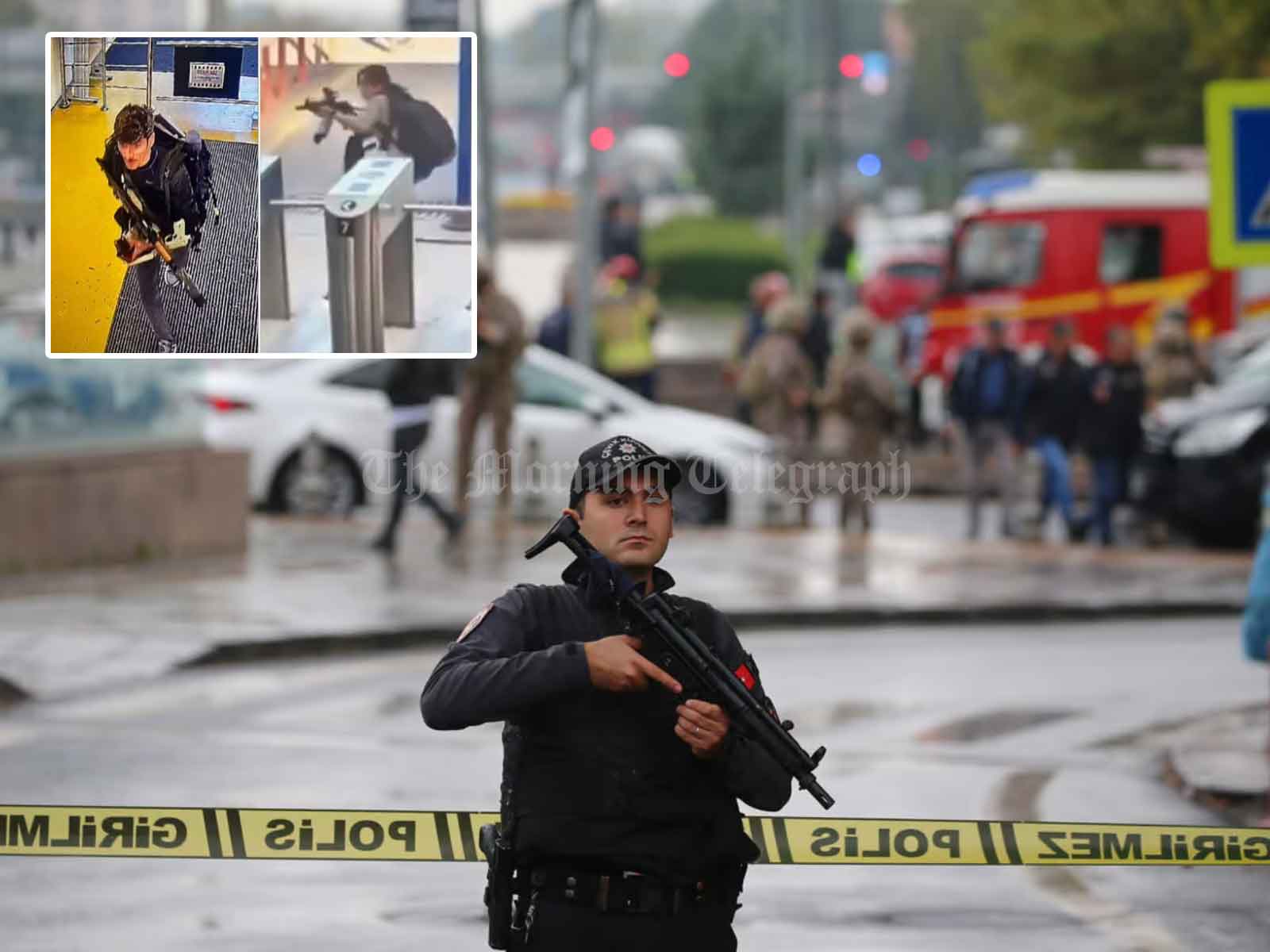
On Wednesday, a coordinated terrorist attack targeted the headquarters of Turkish Aerospace Industries (TUSAS) near Ankara, resulting in five fatalities and injuring 22 others. The attack, carried out in Kahramankazan, about 40 kilometers north of the capital, involved assailants who detonated explosives and opened fire shortly after arriving at the facility in a taxi. The Turkish Interior Ministry quickly identified the incident as a terrorist act, with Interior Minister Ali Yerlikaya confirming that two of the attackers were killed during the operation.
Turkish authorities have pointed to the Kurdish Workers’ Party (PKK), a militant group designated as a terrorist organization by Turkey, the US, and the EU, as the prime suspects behind the attack. Interior Minister Yerlikaya noted that the tactics used in the assault were consistent with previous PKK actions, while Defense Minister Yasar Guler vowed that Turkey would continue to aggressively target PKK militants. “We give these PKK scoundrels the punishment they deserve every time. But they never come to their senses,” Guler stated, emphasizing the Turkish military’s resolve.
In response to the attack, Turkey’s Defense Ministry launched retaliatory airstrikes early Thursday, targeting PKK positions in northern Syria and Iraq. The ministry reported that a total of 32 targets associated with the terrorist group were destroyed in the strikes, which were intended to disrupt PKK operations and eliminate any remaining threats.
The attack on TUSAS, a significant hub for Turkey’s defense industry, has raised serious concerns about the security of strategic military infrastructure. TUSAS specializes in the development and production of aerospace systems, including unmanned aerial vehicles (drones), military aircraft, and is a licensed manufacturer of F-16 fighter jets.
The incident drew widespread international condemnation. Russian President Vladimir Putin expressed his condolences to Turkish President Recep Tayyip Erdogan during the BRICS summit in Kazan, Russia. Germany’s Foreign Ministry described the attack as “deeply shocking,” while NATO Secretary-General Mark Rutte reaffirmed the alliance’s support for Turkey in combating terrorism. The United States, while condemning the violence, acknowledged that further investigations would be needed to confirm the perpetrators.
The PKK has been engaged in a decades-long conflict with the Turkish government, seeking greater autonomy for the Kurdish minority in Turkey. The group has frequently targeted military and government installations, as well as civilian areas, in a campaign that has claimed thousands of lives since the insurgency began in the 1980s. Turkish authorities have maintained an aggressive stance against the PKK, conducting frequent cross-border operations in Iraq and Syria aimed at dismantling the group’s networks.
This latest attack underscores the ongoing security challenges Turkey faces amid regional instability, with the defense industry itself becoming a direct target. The repercussions of the attack are expected to extend beyond military responses, potentially influencing Turkey’s domestic security policies and its approach to counterterrorism in the region.




